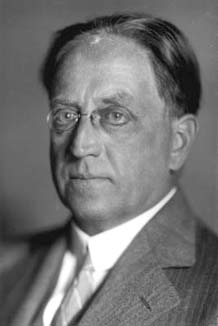


 تاريخ الرياضيات
تاريخ الرياضيات
 الرياضيات في الحضارات المختلفة
الرياضيات في الحضارات المختلفة 
 الرياضيات المتقطعة
الرياضيات المتقطعة
 الجبر
الجبر
 الهندسة
الهندسة 
 المعادلات التفاضلية و التكاملية
المعادلات التفاضلية و التكاملية 
 التحليل
التحليل
 علماء الرياضيات
علماء الرياضيات |
Read More
Date: 18-5-2017
Date: 24-5-2017
Date: 24-5-2017
|
Died: 3 September 1984 in Vienna, Austria

Wilhelm Winkler's father, Julius Winkler, was a music teacher in Prague and his mother was Anne Winkler. He came from a large German speaking family of eight children, Wilhelm being the fourth child. The size of the family naturally stretched Julius and Anne's finances so Wilhelm had to work to augment the income from the time he was 13 years old. He attended the Kleinseitner Gymnasium and then entered the German language Karl Friedrich University in Prague to study law. It was a time of financial hardship and difficulty for Winkler.
After graduating, Winkler practiced law for a short time before volunteering to serve for a year in the Austrian army. After a year in the army he returned to civilian life obtaining a post in the Bohemian State Statistical Bureau in 1909. He now began to study statistics and mathematics seriously, attending statistics seminars at the university and advanced mathematics courses at the Technische Hochschule of Prague. This was a period in which [3]:-
... his interest in application of methods of mathematical statistics in social and economic matters continued to grow.
However Winkler was not happy with the status of statistics in central Europe. He wrote in his memoirs (see for example [5]):-
I soon found out that the German statistical literature did not offer too many ideas. New life came into statistics from England and Russia.
With the outbreak of World War I in 1914, Winkler enlisted in the Austrian army. He was awarded two medals for bravery before being wounded in November 1915. He was taken to a hospital in Prague where he took six months to regain his health. During this time he met one of his former teachers who was in the Ministry of War in Vienna. He invited Winkler to join the scientific committee which the Ministry had set up on war economy and, in June 1916 Winkler began work with the committee in Vienna.
When the war ended in 1918 Winkler became Secretary of State for Military Affairs, but his progressive ideas meant that this was an unpopular appointment as far as certain traditionally minded colleagues were concerned. In this role Winkler attended the Versailles Peace Conference in 1919 as a member of the Austrian delegation. From 1921 Winkler began what is effectively two careers. He had been appointed to the Austrian Central Statistics Office in 1920 and from 1921 he also taught at the University of Vienna at a Privatdozent. Winkler also was by now a married man, having married Clara Deutch in 1918.
Both Winkler's careers progressed in parallel. He was promoted to Head of the Division of Population Statistics in 1925 and at the university he became an extraordinary professor in 1929. As the authors of [3] write:-
Winkler's career is a remarkable conjunction of activity in two main spheres - the practical needs of government and the intellectual austerity of scientific research.
Winkler's work in statistics achieved international recognition for him at this time. However things were to change rather dramatically. The Munich Agreement of 1938 saw large parts of the Czechoslovak republic surrendered to Germany. German troops along with Hitler himself entered Austria on 12 March 1938, and a Nazi government had been set up there. Political pressure was put on Winkler' who was forced to resign from both his government post and his university professorship.
There followed an extremely difficult period for Winkler through the years of World War II. Despite the hardship he and his family suffered, Winkler worked on a book Basic Course in Demography which was eventually published in 1956. It was only after the war ended in 1945 that Winkler was reinstated to his university post when he was appointed to a chair in the University of Vienna. He retired from his chair in 1949 but continued to serve in various capacities such as Dean of the Faculty of Law until 1955.
Schmetterer writes in [5]:-
Winkler published 20 books and about 200 papers covering a wide field of theoretical and applied statistics. He was widely recognised as a statistician of high reputation and received many Austrian and foreign distinctions and honours.
Among these honours was election to the International Statistical Institute in 1927, being made an honorary member in 1965, and also serving as President of the Institute. He was also elected to the Austrian Academy of Sciences (1952) and the Royal Statistical Society (1961). The universities of Munich and Vienna awarded him honorary degrees.
Books:
Articles:



|
|
|
|
لصحة القلب والأمعاء.. 8 أطعمة لا غنى عنها
|
|
|
|
|
|
|
حل سحري لخلايا البيروفسكايت الشمسية.. يرفع كفاءتها إلى 26%
|
|
|
|
|
|
|
قسم الشؤون الفكرية يقيم الحفل الختامي لمسابقة حفظ قصار السور للناشئة في أفريقيا
|
|
|